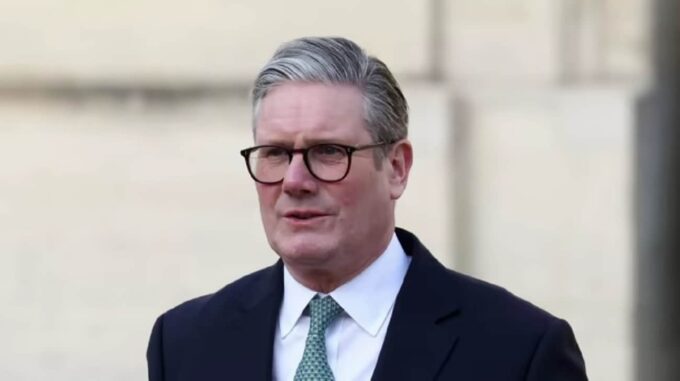UK Prime Minister Kír Starmer expressed optimistic hopes regarding the possible end of hostilities in Ukraine by the summer of 2024

In an interview with The Telegraph newspaper, he emphasized that intense negotiations are currently underway and expressed confidence that Ukraine should have the decisive voice in shaping peace — it should determine the future direction and the conditions of any settlement. The head of the British government underscored that, in his opinion, achieving a genuine and lasting ceasefire requires Russia to sit at the negotiating table and agree to an unconditional halt to hostilities. According to Starmer, this process must involve all parties and aim not merely for a temporary truce but for a sustainable peace that endures in the future. He added that any agreed-upon arrangements should be made with consideration of Ukraine's interests, as Ukraine has the right to define the terms of peace. The British leader also stressed that he insists on security guarantees from the United States and other Western allies for forces that may be stationed on Ukrainian territory to monitor adherence to the ceasefire regime. He sees this as a crucial element for building trust and stability between the parties. In his speech, Starmer did not hide his stance regarding Crimea. He emphasized that he does not support the idea of recognizing Russian sovereignty over Crimea, as proposed in US plans, and warned Moscow against deliberate attempts to use any gaps to return to active hostilities or make unilateral changes to the status of the territory. Commenting on possible peace conditions, Starmer stated that reaching a final agreement must be based on principles of fairness and acceptability for Ukraine. “We all must remember: the authorities that recognize peace must take into account the interests of the Ukrainian people. This is Ukrainian land, and it is the Ukrainians who should determine the conditions under which they will live in peace,” he said. Regarding prospects, the politician highlighted that additional progress in negotiations requires Russia to take concrete steps toward peace and abandon aggression. His words are associated with another historic move by the UK: on the morning of April 24, the country announced a new sanctions package with 150 measures against Russia, aimed at further exerting pressure and forcing Moscow to return to negotiations. Thus, in his key address, Starmer called on all participants in the Ukraine-Russia conflict to assume responsibility and deepen their understanding of the need to achieve a long-term and just peace, abandoning short-term and partial solutions that only leave the door open for future conflicts. His forecasts and appeals remain significant and relevant within the context of the global security situation and the search for ways to end the war, which today determines the fate of the Ukrainian people and all of Europe.

